Politics
Budget crisis: Buhari avoiding fiscal booby traps
Published
8 years agoon
By
Olu Emmanuel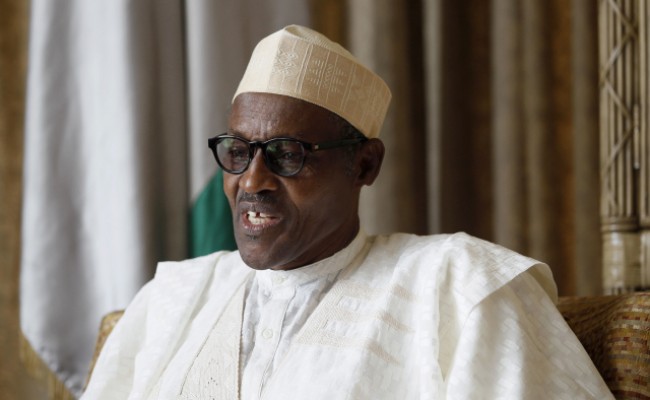
By SUNDAY ODIBASHI
THE controversies surrounding the 2016 budget proposal presented to the National Assembly in December 2015 by President Muhammadu Buhari has deepened to the point that the Presidency seems to have developed skepticism or lost confidence over the processes of its legislation.
Members of the National Assembly, at the inchoate stage, exposed the budget to unnecessary public ridicule, raising alarm of “missing budget.” That episode tended to generate mutual distrust in inter-governmental relations between the different arms of government. Thereafter, there were reports of the budget being withdrawn by the Executive and, on ‘reappearance,’ there were disquieting echoes of two versions of the budget. This raised discontentment towards the National Assembly bureaucracy in handling official documents, including communications between the arms of government.
Subsequently, the issues of budget padding, unwieldy alteration of figures, became writ large. To the consternation of several stakeholders in the body politic, some ministers denied knowledge of certain monetary figures in the budget proposal. Those ministers could simply not defend the allocations of their ministries. This was followed by another drama of budget mafia in the civil service, raising suspicions of bureaucratic sabotage.
Perhaps, the controversies trailing the 2016 may have its genesis from the main source of the budget. Quite obviously, the Appropriation Bill is more of civil servants budget. The budget was put together mainly by Permanent Secretaries who stood in the gap at a period the President was searching for ministerial nominees. Apparently, the budget was prepared within the context of bureaucratic norms without the necessary political supervision by ministers. Virtually, the entire ministers resumed office to inherit seeming already prepared budget and had few months to conduct proper scrutiny before its presentation by the President.
ALSO SEE: 2016 Budget: Delay in presidential assent may worsen economic crisis
In spite of the foregoing inconsistencies, populist expectations were that lawmakers in both chambers of the National Assembly had the time to do thorough work on the budget beginning from December before the expiration of the life span of the 2015 budget on March 31, 2016, having detected the inherent incompatibilities.
Ironically, the Committees on Finance in both the Senate and the House of Representatives, on presentation of the budget for passage by the respective lawmakers still acknowledged having done incomplete oversight on the document, giving excuses of insufficient time.
The seeming inadequacies in the passage of the 2016 budget reflected clearly in the communication of the legislated Appropriation Bill to President Buhari without details of the budget. That singular mix-up exposes that the federal lawmakers, perhaps, passed the budget bill without breakdown or thorough scrutiny of statutory allocations.
Findings showed that National Assembly members were conscious not to be held responsible for delay in passage of the budget by Nigerians. Deliberating on the budget, (monitored from Lagos), Deputy President of the Senate, Ike Ekweremadu, had contended: “If there were mistakes, it will not be good for us to allow it go. We should have find ways to fill it. You cannot blame the executive.”
Senator Danjuma Goje also remarked: “The budget is full of controversies and we don’t want to add to it.”
The President of the Senate, Dr. Abubakar Bukola Saraki, was, however, of the view that the budget reflected efficient and equitable allocation of resources.
Meanwhile, the Eight National Assembly made history in being the first Assembly to cut down the budget since 1999.
Over the years, the crisis of budget padding has been coming from the National Assembly, often accused of jerking figures. Invariably, cutting off N17.8 billion from the initial N6.077 trillion presented in December by the President to N6.06 trillion was remarkable. However, the lawmakers were unable to alter the budgeting history of exceeding recurrent expenditure over capital expenditure. More so, several stakeholders also complained of budget cuts on capital expenditure rather than limiting the fiscal cuts to recurrent expenditure in order to reduce the gap.
The budget summary indicated statutory transfers of N351,370,000,000; debt service N1,475,320,000,000; recurrent expenditure N2,646,389,236,196; capital expenditure N1,587,598,122,031 and fiscal deficit of N2,204, 936,925,711.16.
ALSO SEE: Budget deficit: FG plans to raise N1.884 trillion
Furthermore, the delay in not providing the breakdown of monetary allocations deepens the fear of inherent corruption indices in the budget to which the President insists on personal scrutiny before accent.
The budget controversies generated unanticipated embarrassment in denting the image of the All Progressives Congress (APC) on the voyage of change in its historic takeover of the federal government as an opposition. Accordingly, President Buhari has insisted he would not sign the 2016 Appropriation Bill into law as passed by the National Assembly, until he critically reviews it.
The President while interacting with the United States Secretary of State, John Kerry, in Washington DC, had remarked that in view of the controversial alterations and padding of the budget proposals, he needed to review the document to be certain that its contents corresponded with the authentic budget proposal presented to the National Assembly in December. He had noted: “some bureaucrats removed what we put in the proposal and replaced it with what they wanted.”
In overt display of his skepticism, President Buhari declared: “I have to look at the bill that has been passed by the National Assembly, ministry by ministry; to be sure that what has been brought back for me to sign is in line with our original submission.”
Until this is done, the country has entered into another era of budget over-spending. Since the legal life span of the 2016 budget commenced on April 1, and the budget passage remains inconclusive, the President has the backing of the law to spend from the public treasury to a certain limit pending when the budget impasse is resolved.
Over the years, there have been noticeable disagreements between the legislators and the Presidency that the executive over-spent the budget, even without supplementary budgeting. Such accusations from the National Assembly were noticed during the tenure of former President Olusegun Obasanjo as well as late President Umar Musa Yar’Adua.
You may like


SSANU, NASU members block UNILAG gate over withheld salaries


Amazing Pictures expands to UK: Revolutionizing art investment with Pop-Up galleries
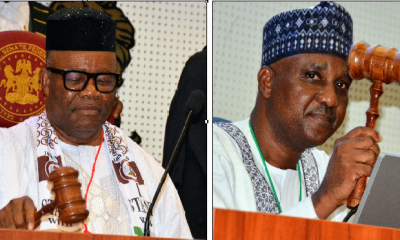

How National Assembly budget rose from N2.2bn in 1999 to N344.9bn in 2024
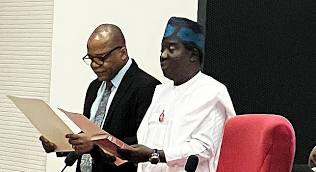

Simon Lalong resumes as Senator in 10th NASS after being sworn in
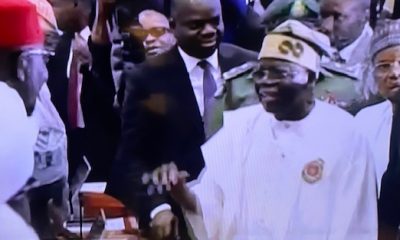

Tinubu presents 2024 Budget proposal of N27.5trn to Joint Session of National Assembly
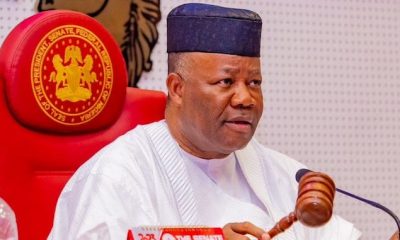

Senate passes 2024-2026 MTEF-FSP, N26trn budget proposal for 2024
Trending

 Football7 days ago
Football7 days agoGuardiola advised to take further action against De Bruyne and Haaland after both players ‘abandoned’ crucial game

 Health & Fitness1 day ago
Health & Fitness1 day agoMalaria Vaccines in Africa: Pastor Chris Oyakhilome and the BBC Attack

 Featured5 days ago
Featured5 days agoPolice reportedly detain Yahaya Bello’s ADC, other security details

 Comments and Issues7 days ago
Comments and Issues7 days agoNigeria’s Dropping Oil Production and the Return of Subsidy

 Education6 days ago
Education6 days agoEducation Commissioner monitors ongoing 2024 JAMB UTME in Oyo

 Business6 days ago
Business6 days agoMaida, university dons hail Ibietan’s book on cyber politics

 Education1 week ago
Education1 week agoOsun NSCDC solicits cooperation towards national assets protection

 Crime6 days ago
Crime6 days agoPolice take over APC secretariat in Benue

